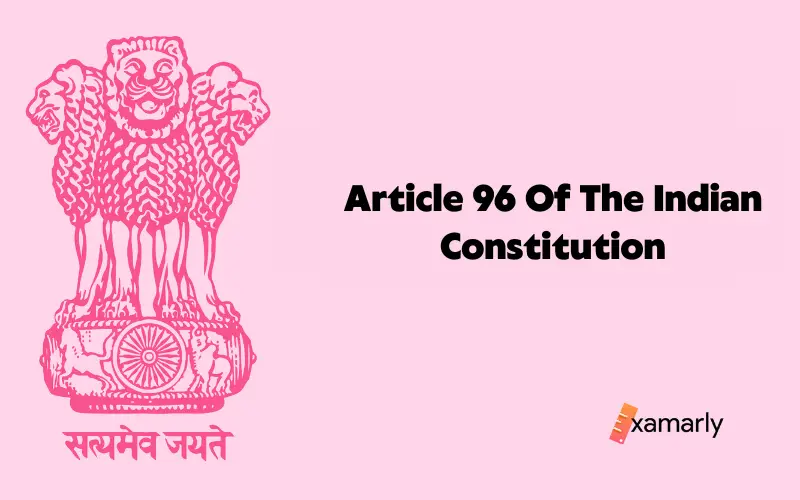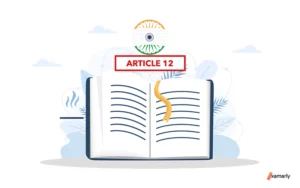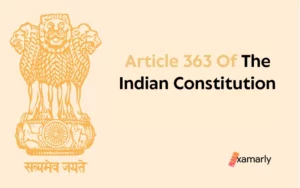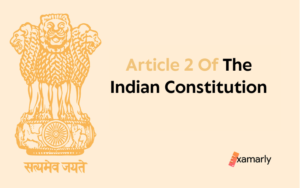Introduction
Article 96 of the Indian Constitution talks about the conditions in which The Speaker has to work if his removal from the Lok Sabha is into consideration. Let us learn more about it in the following lines.
There are some provisions in the Indian constitution on the manner in which a particular office would function in some unique scenarios. The different articles in the Indian Constitution signify different prominent parts of the protocol as a whole.
We saw in Article 95 of the Indian Constitution how the vacant seat of The Speaker of Lok Sabha will be fulfilled. Similarly, all the other articles have some or the other provisions that are prominent and sum up as a complete protocol for the working of the government of India.
Related – Article 95 Of The Indian Constitution
Article 96 Of The Indian Constitution – An Overview
Article 96 Of The Indian Constitution reflects on what would be the working condition of the Speaker or the Deputy Speaker of the Lok Sabha when his removal is deemed. How his authority, power, and position among others will be affected can be read in the aforementioned article.
Article 96 Of The Indian Constitution – In Detail
The Article as in the constitution goes like “96. The Speaker or the Deputy Speaker is not to preside while a resolution for his removal from office is under consideration
(1) At any sitting of the House of the People, while any resolution for the removal of the Speaker from his office is under consideration, the Speaker, or while any resolution for the removal of the Deputy Speaker from his office is under consideration, the Deputy Speaker, shall not, though he is present, preside, and the provisions of clause ( 2 ) of Article 95 shall apply in relation to every such sitting as they apply in relation to a sitting from which the Speaker, or, as the case may be, the Deputy Speaker, is absent
(2) The Speaker shall have the right to speak in, and otherwise to take part in the proceedings of, the House of the People while any resolution for his removal from office is under consideration in the House and shall, notwithstanding anything in Article 100, be entitled to vote only in the first instance on such resolution or on any other matter during such proceedings but not in the case of an equality of votes”
By going through the above-mentioned article as it is in the constitution we get a gist of what regulations will be applied to the Speaker and The Deputy Speaker of Lok Sabha. But what are these clauses and why are these made in the very first place? This article will help to answer all your question and will quench all your curiosity.
Let us understand Article 96 of the Indian Constitution in detail by looking closer at its clauses and understanding them one by one in detail.
Clause 1 – As It Is & Explained
“(1) At any sitting of the House of the People, while any resolution for the removal of the Speaker from his office is under consideration, the Speaker, or while any resolution for the removal of the Deputy Speaker from his office is under consideration, the Deputy Speaker, shall not, though he is present, preside, and the provisions of clause ( 2 ) of Article 95 shall apply in relation to every such sitting as they apply in relation to a sitting from which the Speaker, or, as the case may be, the Deputy Speaker, is absent”
The first clause of Article 96 of the Indian Constitution says that during the time if there is any resolution of the removal of the Speaker or The Deputy Speaker going on in the Lok Sabha, The Speaker, and The Deputy Speaker will not be authorizing any of the sittings.
If someone has to address the sitting on their behalf of them that person will be decided as per the provisions made in clause (2) of Article 95 of the Indian Constitution. These provisions will be applicable to every single sitting under the above-mentioned scenario and also if The Speaker and The Deputy Speaker are absent together.
Clause 2 – As It Is & Explained
“(2) The Speaker shall have the right to speak in, and otherwise to take part in the proceedings of, the House of the People while any resolution for his removal from office is under consideration in the House and shall, notwithstanding anything in Article 100, be entitled to vote only in the first instance on such resolution or on any other matter during such proceedings but not in the case of an equality of votes”
Clause 2 of Article 96 of the Indian Constitution simply states that though the Speaker will not have any authority during his removal in consideration, he still has the right to speak in the processing and also can he take part in the proceedings.
As a matter of fact, Article 100 of the Indian Constitution has a clause that says the voting of an acting Speaker shall not vote in the first instance but he can vote if there arises the equality of votes. But, clause 2 of Article 96 of the Indian Constitution reverses this notion and says that the acting Speaker can vote in the first instance but not in the scenario were to arise the equality of votes.
Summing Up
Article 96 of the Indian Constitution surmounts all the pivotal aspects that should be taken into consideration while in the sittings of the House on some extraordinary scenarios. Also, we noted that some clauses from some Articles can be mended in some other Articles as per the need of the hour.
The Parliament has all the extraordinary cases covered with various procedures mentioned in all the important Articles in our constitution.






